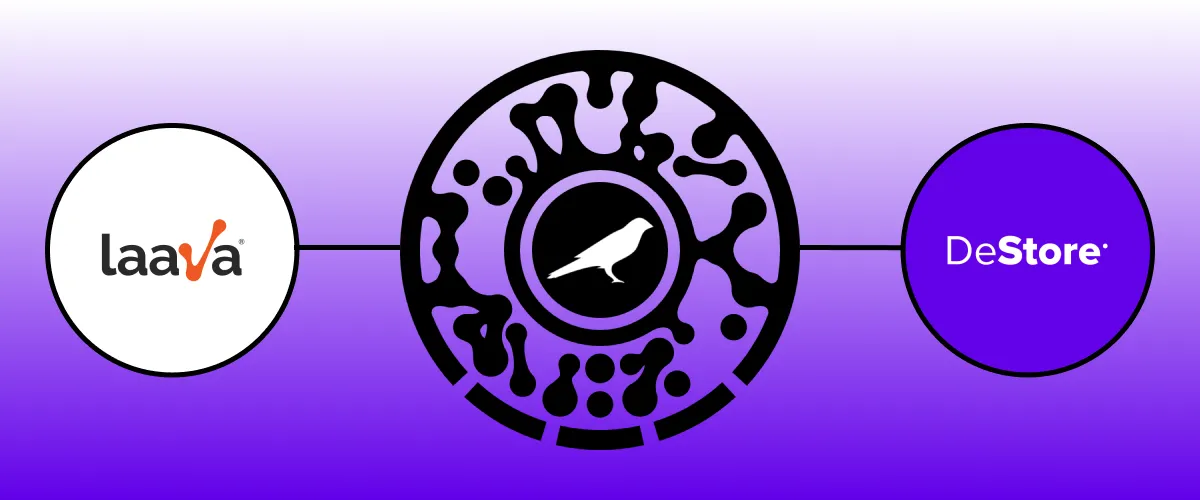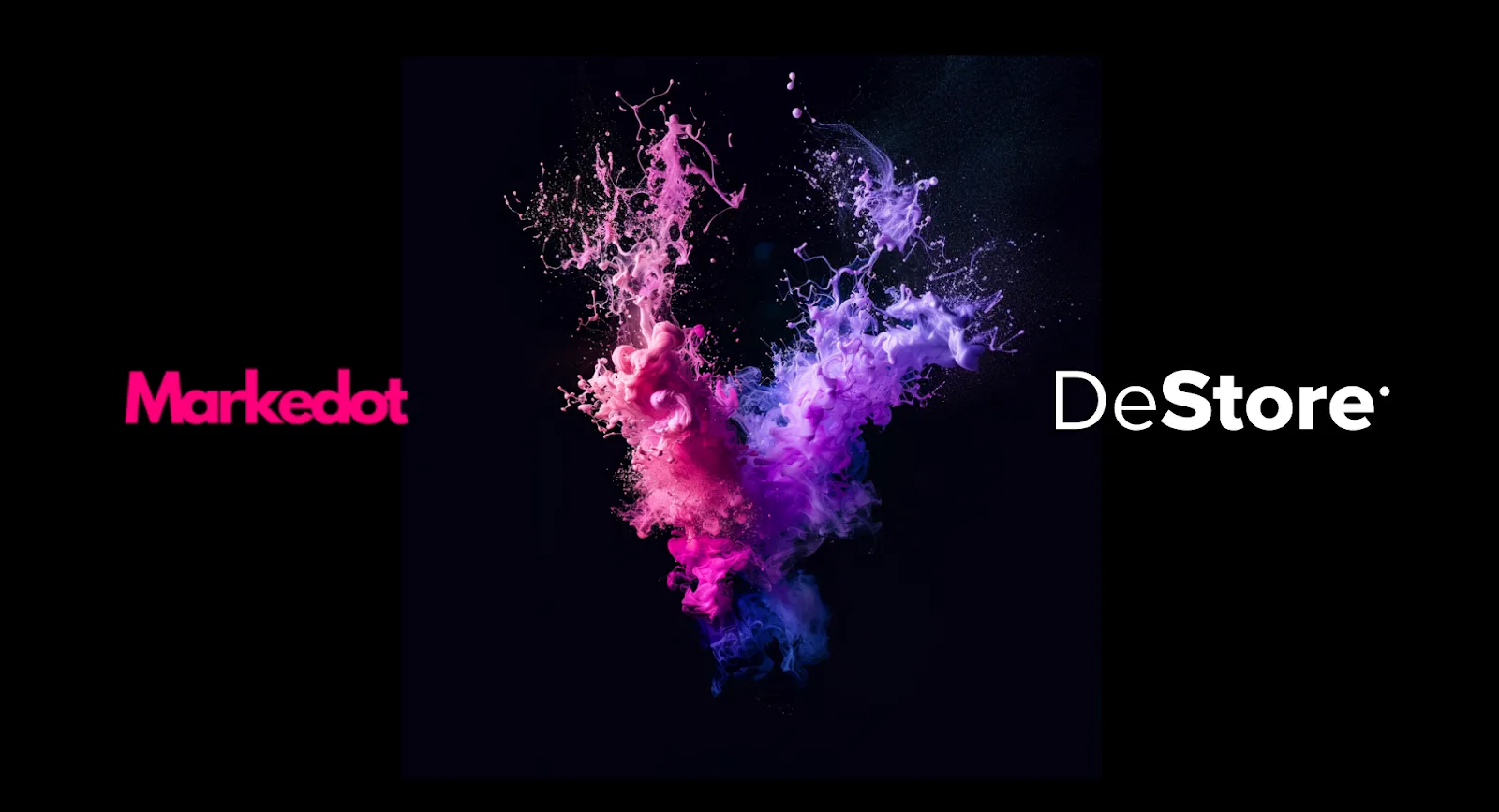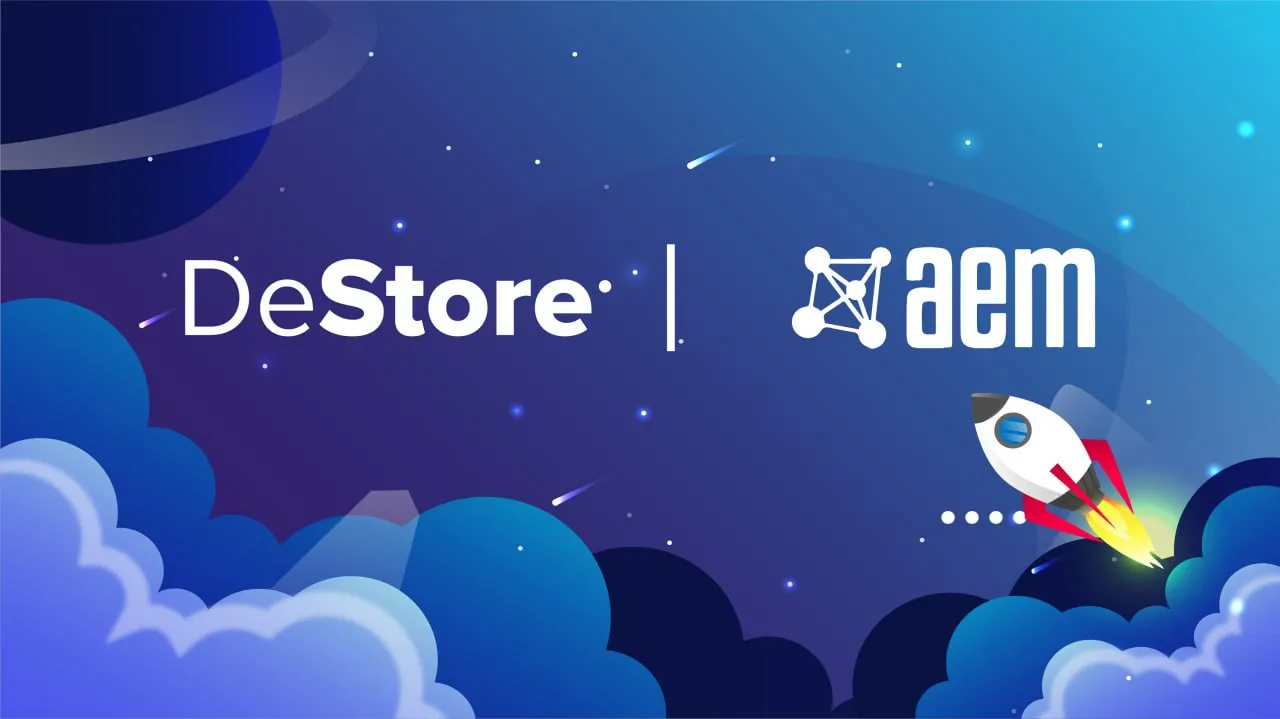DeStore Introduction
I am Josiah Kotzur, founder of DeStore.Network. I grew up traveling around Australia with my parents and have since then had many life changing experiences that made me who I am right now. I have been an entrepreneur since the age of 9 and have had multiple privately owned businesses.
I have been in the Crypto world since 2016 and have been learning and keeping up to date with the latest technological advancements.
DeStore is an ecommerce platform that enables businesses to tokenize products and sell real-world assets in the metaverse. It offers a unique solution for an emerging market by connecting old and new technologies and providing a mining platform for Blockchain-based Digital Twins of physical products.
DeStore’s platform is being designed to be easy to use and includes educational tools and trackable sales history. It specializes in real-world assets and is 3D compatible, enabling Web3 businesses to create AR, VR, and XR shopping experiences for their customers. DeStore’s Digital Twin technology will enable real-world assets to be identified virtually, allowing businesses to sell metaverse-compatible Web3 products.
DeStore allows Web 2.0 SMEs to expand into Web3 with their existing accounting software. Its applications will include metaverse-based trade, virtual reality shopping, IRL self-serve shopping counters, web browser shopping, mobile crypto wallet shopping, on-demand 3D print products, and more.
What inspired you to start a Web 3 ecommerce business, and how does it differ from traditional ecommerce businesses?
I have been around opals my whole life, opals are beautiful rocks created by mother nature over thousands of years and they can contain all the colors of the rainbow (the new diamond). In 2019 I bought an Opal mine in Yowah, outback Australia, and because this place is so isolated I decided I wanted to start selling my Opals on the Metaverse.
I created a platform to facilitate this but very rapidly realized that this could be the solution to many other businesses that want to enter Web 3 ecommerce. As everyone has something to sell, I realized that it made more sense to open up the platform to a wider audience.
With the advent of the digital age, products can now provide new dimensions of value beyond their physical utility. This means that they can also offer digital utility, in addition to their physical form.
By merging physical and digital, companies can add value to their brand beyond just the utility of their products. The integration of digital components can enhance the user experience, provide additional features and services, and create new revenue streams. This allows businesses to stay competitive in a rapidly evolving market and appeal to a wider audience.
There’s a wide range of benefits in Web 3 that are not present in Web 2.
Can you explain how your Web 3 ecommerce platform operates, and what kind of benefits it offers to both buyers and sellers?
The Destore Phygital Asset Marketplace is currently in Open Beta, which allows us to test and trial concepts that we envision for Web 3 commerce. As we are on this technologic journey, we concluded providing people with an NFT of a physical product is not good enough.
We are currently building an NFT minting protocol that will allow merchants to sell multi-resource items coupled with the corresponding physical item, giving buyers access to MP4s, JPEGs, PDFs, STLs, and other relevant files. All of these resources will be transferred to the buyer at the point of sale, and this allows businesses to add multiple layers of value to their products and give them multi-dimensional utility.
DeStore is giving birth to:
- Extendard reality products
- On demand 3D Product printing and dispatching
- Product Storytelling
- Live product price tracking
- Live profit and loss reports
- Live reconciling
- Live inventory monitoring
- Metaverse wearables
- XR wearables
- Self sovereign asset management
- Insurance
How do you ensure that your Web 3 ecommerce platform is secure and trustworthy, and what measures do you have in place to protect user data and privacy?
DeStore uses blockchain technology to ensure the security of product information. The information is encrypted using API keys, and also provides buyers and sellers with each other’s contact information for easy aftersale communication.
We are committed to building a compliant and privacy-focused marketplace, while staying up-to-date with the latest developments in blockchain technology and regulations to provide a safe environment for buyers and sellers to trade.
What kind of products and services does your Web 3 ecommerce platform offer, and how do you ensure that they are high-quality and meet customer expectations?
DeStore is currently developing a user-friendly marketplace for brands to distribute any of their products. The platform will provide Laava.ID verification, an on-chain review system for verified reviews, and decentralized ID login.
Additionally, DeStore will offer its stallholders the ability to provide augmented reality experiences accessible by scanning the physical product. The animations will be verified via the on-chain transaction of the product collection, accessible through a mobile phone.
The first product is already live and for sale on Destore.network: The Party Rock Collection, a collection of a 1000 opal necklaces (gemstones) that serve as the first test collection on DeStore. The rocks are provided by the Digi Diggers, an opal miner team featured on the show Outback Opal Hunters, on Discovery Channel. The team sold the first Phygital opal necklace in the metaverse (episode to be released on Discovery Channel later this year).
Read more about the collection on Medium.
The party rock collection is the pilot project of DeStore network and will allow the owners to gain access to DeStore parties as well as future stakes in the platform and revenue share. More information about this matter will be released soon.
The second product that will go online on the Kusama Network is the #[test]swagV1 Collection, a phygital merchandise trial backed by the Kusama treasury and council. We will soon release more information about this on our Twitter space.
#[test]swagV1 will be a cross reality Phygital Hoodie that extends the product’s utility “In Real Life” (IRL), as well as in augmented reality.
We are planning on starting to take on other businesses in the near future, feel free to reach out so we can put you on the list.
Can you tell us more about why you are working within the Polkadot ecosystem?
DeStore believes in the future of multi-chain technology and aims to establish itself as a first-mover. Its open beta platform can be easily deployed on any parachain in the Polkadot ecosystem and possibly Polkadot itself, providing a solution for distributing products across all 43 chains.
How do you plan to scale your Web 3 ecommerce business, and what kind of challenges do you anticipate in doing so?
We plan to soon release small collections of 500 phygital postcards (in collaboration with a mysterious Astar DAO) to community members to gather more valuable feedback and improve the platform and user experience.
The first dropshipping test will be conducted on Astar with the participation of an Astar native DAO, followed by the Kusama Hoodie trial. We intend to gather data from these trials and learn from them, to be able to grow in the most effective way possible.
In terms of challenges, although RMRK 1.0 allows easy deployment on any chain, it has its flaws. Therefore, once DeStore has matured its product-market fit, it plans to work with Astar and adopt Smart Contracts 2.0 to upgrade its protocol accordingly.
This will enable DeStore to provide a robust and scalable solution, making it a permissionless, open commerce marketplace.
The adoption of Smart Contracts 2.0 in collaboration with Astar will allow us to upgrade our protocol and provide a better user experience, leading to wider adoption and growth of the platform.
How do you see Web 3 technology evolving in the ecommerce space over the next few years, and how do you plan to stay ahead of the curve?
We see that the gap between digital and real life is closing, and there is a convergence of technology types such as Artificial Intelligence, Extended Reality, and Blockchain, disrupting all sectors. ECommerce is just one of them, but it represents trillions of dollars.
Our strategy is to provide a Web 3 native solution to all businesses, focus on being decentralized, and most importantly, allowing our store holders to remain self-sovereign. We believe that our vision for Web 3 commerce will mature into Open Decentralized Commerce and offer our community a secondary compliant commerce rail or side of CBDCs.
We believe that between Augmented Reality (AR) and Virtual Reality (VR) the most long term growth in ecommerce will come from AR, this is because there is no substitute for In Real Life (IRL) engagement.
How do you collaborate with other Web 3 businesses and platforms, and what kind of partnerships have you formed so far?
DeStore was founded on the idea of enabling its founder to sell a product in the Metaverse while remaining self-sovereign and operating outside of the banking system.
DeStore’s partnership strategy is to first align with like-minded individuals who share its vision of self-sovereign, decentralized trade.
When the company hits roadblocks, it seeks out appropriate partners that it can scale with. DeStore plans to evolve into a DApp hub offering tools for small and medium-sized enterprises (SMEs) to create the customer experience they desire.
What role do you see DeStore and Astar playing in the evolution of eCommerce as partners?
Astar and DeStore share a multi-chain vision, and we believe that our synergies will enable us to scale alongside Astar, as it competes with Matic and other top 100 blockchains. Once our drop shipping trials are done we will start to work closely with Astar and implement smart contracts 2.0.
We are very proud of being part of the Sony Incubation Program and look forward to possibly release their products on DeStore.Network soon.
We have our sights set on businesses such as Sony, as well as the other Astar partnered business that are testing the waters with Astar NFTs. Soon, we will be able to offer them the necessary tooling and means to release phygital collectibles with multidimensional utility on our platform.
Conclusion
DeStore is here to grow and to help a wide range of businesses by working towards open decentralized commerce, offering business self sovereign solutions outside of CBDCs.
Thanks everyone for your time and interest, please visit our website DeStore.Network and get your Party Rock, follow us on Twitter to keep up to date with our advancements and/or email us on josiah@destore.network if you would like to connect.
We also want to share that we are giving away one of our Party Rocks, so feel free to join the competition!! The winner will be announced on the 1st of May.
See you soon in Japan for the Sony Incubation DEMO day!!
We are excited to announce our new partnership with Laava, which will enable us to provide enhanced security and authenticity measures for our customers. The Laava Smart Fingerprint® technology is a unique and secure way to authenticate products and phygital merchandise.
DeStore and Laava will work together on the Kusama Merchandise Trial to find a scalable solution for DAOs and SMEs to verify their products on Substrate-based chains. The soon-to-be-released Phygital Kusama Hoodies will have a unique Laava ID on each of them, which will authenticate the hoodies.
If the trial is successful, information based on community feedback, DeStore and Laava plan to use the digital fingerprints for on-chain product reviews, video unboxing events and augmented reality product animations through the use of a Phygital Asset wallet.
“Laava Smart Fingerprints are not only a scalable solution for all businesses that want to verify their products, but I also believe they will be the key to unlocking verified extended reality experiences of Phygital products.”
– Josiah, DeStore Network Founder & CEO




